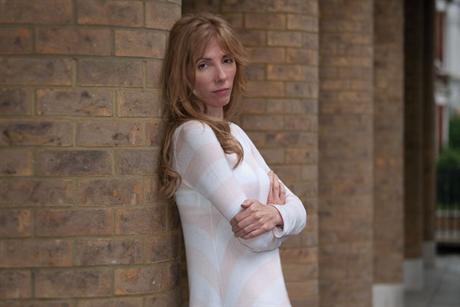Everyone in adland is writing a book these days. Or thinks they should be. It’s quite the thing. Perhaps it always was in an industry like advertising, where ideas bubble, change is constant and creativity is oxygen.
So it’s perverse that the art of writing advertising copy, writing to persuade and sell, should have become less valued and excellence less demanded.
Looking through the entries to our Big Awards last week, the judges agreed that the standard of writing was pretty depressing, copy lines on high-profile, big-budget campaigns were boring, hackneyed, sloppy, embarrassing. How could so many poorly crafted words have made it all the way through to the public page?
The shorter lead times for campaign development don’t help. Maurice Saatchi quotes Blaise Pascal on page 13: "I didn’t have time to write a short letter, so I wrote a long one instead." The luxurious creative process enjoyed by Malcolm Gluck back in the 60s and 70s (page 24) is mostly untenable now.
And it is often argued that consumers don’t read copy anymore, or at least don’t have any tolerance for copy much beyond 140 characters. Perhaps, but as the writers in the D&AD Copy Book and, as it happens, Maurice Saatchi, understand, the most powerful words are those with a condensed potency stripped bare of any superfluous thoughts: brutal simplicity. One hundred and forty characters can do that.
So why have agencies allowed the craft of writing to wither? The problem (and it is a problem: ads need to persuade, entertain and inform and that’s hard to do effectively without words) runs deeper than internal and external time pressures. It’s about training, expectation and relentlessly demanding better. We need a new focus on the standard of advertising copy writing, and the reissued Copy Book is a good place to start.
Talking at this week’s BrandMAX event, the so-clever Charles Vallance nailed one of the big unspoken challenges when it comes to the whole business of integration. Really talented people are seldom co-operative; they don’t have to be because they’re talented.
Co-operative people have to be because they aren’t very talented. Talented people passionately believe in what they do, they are fiercely principled about their ideals and beliefs and they are almost always uncompromising.
Claire Beale is the editor of 北京赛车pk10
So it’s perverse that the art of writing advertising copy, writing to persuade and sell, should have become less valued and excellence less demanded.
Looking through the entries to our Big Awards last week, the judges agreed that the standard of writing was pretty depressing, copy lines on high-profile, big-budget campaigns were boring, hackneyed, sloppy, embarrassing. How could so many poorly crafted words have made it all the way through to the public page?
The shorter lead times for campaign development don’t help. Maurice Saatchi quotes Blaise Pascal on page 13: "I didn’t have time to write a short letter, so I wrote a long one instead." The luxurious creative process enjoyed by Malcolm Gluck back in the 60s and 70s (page 24) is mostly untenable now.
And it is often argued that consumers don’t read copy anymore, or at least don’t have any tolerance for copy much beyond 140 characters. Perhaps, but as the writers in the D&AD Copy Book and, as it happens, Maurice Saatchi, understand, the most powerful words are those with a condensed potency stripped bare of any superfluous thoughts: brutal simplicity. One hundred and forty characters can do that.
So why have agencies allowed the craft of writing to wither? The problem (and it is a problem: ads need to persuade, entertain and inform and that’s hard to do effectively without words) runs deeper than internal and external time pressures. It’s about training, expectation and relentlessly demanding better. We need a new focus on the standard of advertising copy writing, and the reissued Copy Book is a good place to start.
Talking at this week’s BrandMAX event, the so-clever Charles Vallance nailed one of the big unspoken challenges when it comes to the whole business of integration. Really talented people are seldom co-operative; they don’t have to be because they’re talented.
Co-operative people have to be because they aren’t very talented. Talented people passionately believe in what they do, they are fiercely principled about their ideals and beliefs and they are almost always uncompromising.
Claire Beale is the editor of 北京赛车pk10


